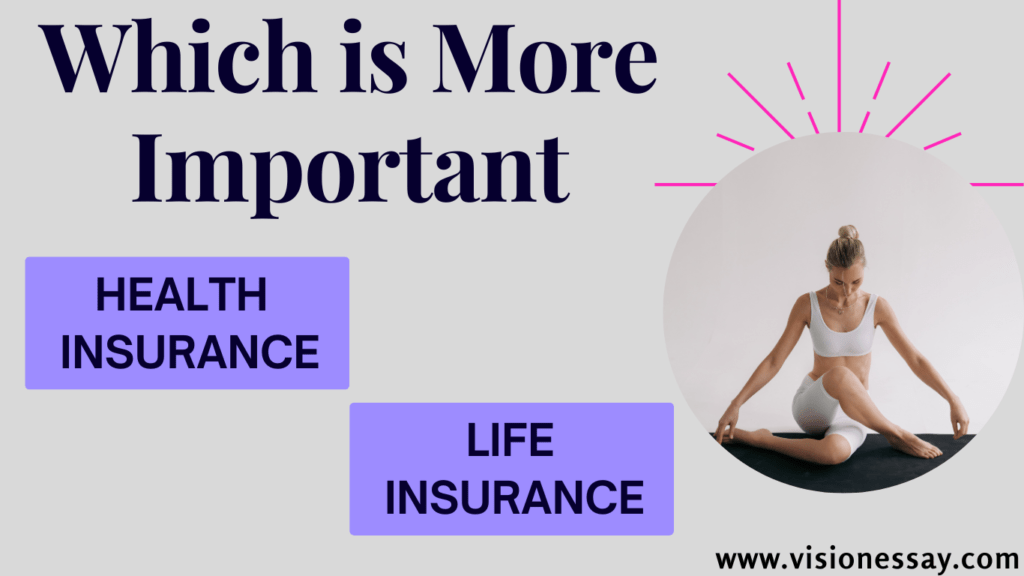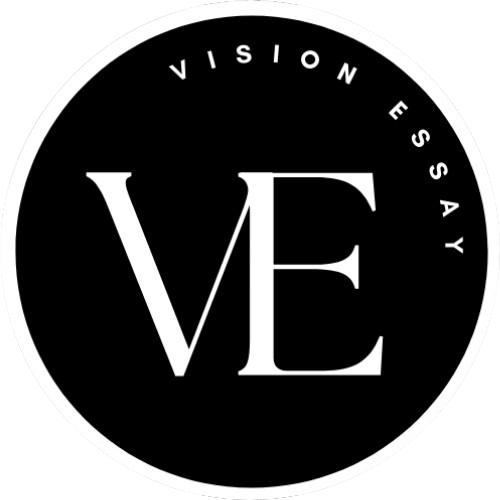
Introduction
Two of the most significant kinds of insurance that offer different types of financial security to people and families are health insurance and life insurance. Life insurance provides financial support to beneficiaries in the event of the policyholder’s death, whereas health insurance covers medical costs and healthcare expenses. Both sorts of insurance are essential for protecting people’s health and financial security as well as that of their loved ones. Making educated choices regarding the sort of coverage that best meets your needs requires knowledge of the differences and advantages of each.
What is Health Insurance?
A type of insurance coverage called health insurance offers financial security against medical costs. It is intended to assist people and families in covering the costs of medical treatment, such as check-ups with a doctor, stays in a hospital, prescription drugs, surgical procedures, and other healthcare services. Health insurance works by combining multiple people’s risks and dispersing the cost of medical care among a wide number of people. The insurance firm accepts regular premium payments from insured people in exchange for agreeing to pay a percentage of their medical expenses in accordance with the conditions of the insurance policy.
Also Read: What is Life Insurance? Its Types, Purpose, and Benefits in 2023
What is Life Insurance?
When an insured person passes away, the named beneficiaries of their life insurance policy will get a financial benefit. It is intended to provide financial security to the insured person’s dependents or family in the case of their passing. You give the insurance provider recurring premiums when you buy a life insurance policy. In exchange, the insurance provider promises to provide the beneficiaries listed in the policy with a fixed quantity of money, known as the death benefit, following the death of the insured. The beneficiaries may utilize this money for a variety of things, including paying funeral costs, clearing debts, making up for lost income, or assuring their family’s financial security.
Which One is More Important for Individuals?
Depending on personal circumstances and priorities, it can be difficult to say whether health insurance or life insurance is a person’s most important insurance.
- Immediate Financial Protection: Health insurance is essential if a person or their family could incur significant medical costs in the future or have acute healthcare demands. It offers protection for prescription drugs, doctor visits, hospital stays, and medical procedures. Without health insurance, people would find it difficult to pay for required medical care, which could have a bad effect on their health and well-being.
- Long-Term Financial Security: When people have dependents or financial responsibilities that would be difficult to fulfill in the event of their death, life insurance becomes even more crucial. Life insurance can offer crucial post-death financial support if a person’s lifestyle or the payment of bills like debts, mortgages, or educational costs depend on that person’s income.
- Risk Assessment: It is crucial to evaluate one’s own risks and situations. Health insurance becomes especially important if a person has a chronic illness, a pre-existing medical condition, or participates in activities with higher health risks. On the other hand, people with dependents who depend on their income or those who work in professions with higher risks (such as dangerous ones) may place a greater value on life insurance.
- Financial Stability: Prioritising insurance coverage requires evaluating a person’s overall financial soundness. Depending on cost and pressing demands, people with limited financial means may need to prioritize one sort of insurance over another.
- Comprehensive Protection: Life insurance provides long-term financial security, whilst health insurance takes care of immediate medical requirements. Combining the two can offer full protection and assist people and families in reducing numerous hazards.
Which One is More Important for Families?
A key factor to take into consideration is which insurance, life insurance or health insurance, is more vital for families. The safety and financial stability of families are greatly enhanced by both types of insurance.
- Immediate Healthcare Needs: Families place a high value on health insurance since it covers hospital stays, prescription drugs, preventive care, and medical services. Families rely on health insurance to get the essential medical treatment they need, protecting the health of both parents and kids. It promotes prompt medical interventions and guards against the financial burden of unanticipated medical costs.
- Financial Stability in the Event of Death: When a family considers the financial impact of losing both parents or the principal income, life insurance becomes more crucial. The death benefit from a life insurance policy can assist replace lost income, pay for funeral costs, settle debts, and give the surviving family members, especially dependents, financial security. Even after the loss of income, it can guarantee that the family’s continuous financial commitments and the costs associated with the children’s education are satisfied.
- Protecting Dependents and Future Needs: When a family has dependents who depend on them financially, such as young children or elderly parents, life insurance is extremely crucial. It offers a safety net to cover their requirements in the future, including their costs of living and healthcare. After the passing of a parent or primary carer, life insurance can help lessen the financial strain and lifestyle upheaval that may result.
- Balancing Immediate and Long-Term Protection: Families must find a balance between their short-term medical requirements and their long-term financial stability. Family members who have health insurance can receive high-quality medical care without having to pay a lot of money. In addition, life insurance provides comfort in knowing that the family’s financial security is secured in the event of an unforeseen circumstance.
- Individual Circumstances: The significance of health insurance and life insurance can be influenced by factors including the number of dependents, the age of family members, pre-existing medical issues, and the financial obligations of the parents. To protect their family’s future, families with small children or those with greater financial obligations may give life insurance a priority, whereas families with urgent medical requirements or conditions may give health insurance priority.
Some Points to Consider Which is Essitientals?
- Protection of Financial Stability
- Health insurance: It offers coverage for medical services, prescription drugs, hospital stays, and preventative care in addition to offering protection against high medical costs. It assures access to essential healthcare while assisting people and families in managing the financial burden of unforeseen medical expenses.
- Life insurance: In the event of the insured person’s passing, it protects their dependents’ capacity to support themselves financially. The death benefit can be used to maintain the standard of living for the family, pay off debts, cover burial costs, and replace lost income.
- Coverage Scope and Duration
- Health insurance: A wide range of medical services are normally covered, but it may also include restrictions, exclusions, and cost-sharing elements (such as deductibles, copayments, and coinsurance). As long as the premiums are paid and the policy is active, health insurance is typically valid.
- Life insurance: Depending on the type of policy, it offers protection for a set period of time (term life insurance) or for the rest of one’s life (permanent life insurance). It pays beneficiaries a lump sum payment and is primarily concerned with the financial effects of a person’s passing.
- Immediate vs. Long-Term Needs
- Health insurance: By paying for medical costs incurred due to disease, injury, or preventative treatment, it meets urgent healthcare requirements. It provides quick access to medical care, which is important for preserving health and well-being.
- Life insurance: After the insured person’s passing, it takes care of the dependents’ long-term financial needs. Future financial security is ensured, covering debt payments as well as continuous living expenses, educational costs, and living expenses.
- Personal Circumstances
- Health insurance: Regardless of age, it is essential for individuals and families because medical emergencies can happen at any time. For people with chronic illnesses, pre-existing conditions, or those who work in professions with higher risks, it is especially important.
- Life insurance: Depending on an individual’s stage of life, its relevance may change. When someone has financial obligations, such as a mortgage or debts, or when they have dependents who depend on their income, it becomes much more important.
- Balancing Both
- It’s crucial to understand that life insurance and health insurance have separate functions and can work together to offer more complete protection. Life insurance provides loved ones with long-term financial security while health insurance takes care of immediate medical requirements.
- Individuals and families may need to prioritize one over the other or think about having both types of insurance coverage depending on their specific circumstances and financial resources.
Conclusion
Both life and health insurance are essential for ensuring one’s financial security and safeguarding one’s and one’s family’s well-being. While life insurance focuses on providing financial support to beneficiaries in the case of the policyholder’s death, health insurance is crucial for covering medical costs and ensuring access to healthcare services. Although both life insurance and health insurance are essential, the importance of each may differ depending on a person’s specific situation. To choose the right coverage, people and families should consider their individual needs, financial objectives, and top priorities. Which insurance kind to choose relies on a person’s unique situation, preferences, and risk factors.
Frequently Asked Questions (FAQs)
What is more important health insurance or life insurance?
As was previously indicated, health insurance takes care of your medical costs while you are still living, whereas life insurance provides financial support to your family in the event of your untimely death.
Which health insurance is best for 2023?
1. Best for Robust Coverage: Blue Cross Blue Shield.
2. Best Value Plans: Oscar.
3. Highest Quality Plans: Kaiser Permanente.
4. Best for Same-Day Care: Aetna CVS Health.
5. Best for Medicare Advantage Plans: UnitedHealthcare.
Is family health insurance better than individual?
For larger families or those with elderly parents, individual health insurance is strongly advised because a family floater may not be adequate. A young couple or a tiny, nuclear family might benefit from family health insurance.
What type of insurance is best for a family?
You may safeguard your family by purchasing a variety of life insurance products. Term life and entire life are primarily among them. Due to its simplicity, low cost, and limited duration, term life insurance is the ideal option for the majority of young families.
Sources:
